Sustainable policy reforms demand a cultural change
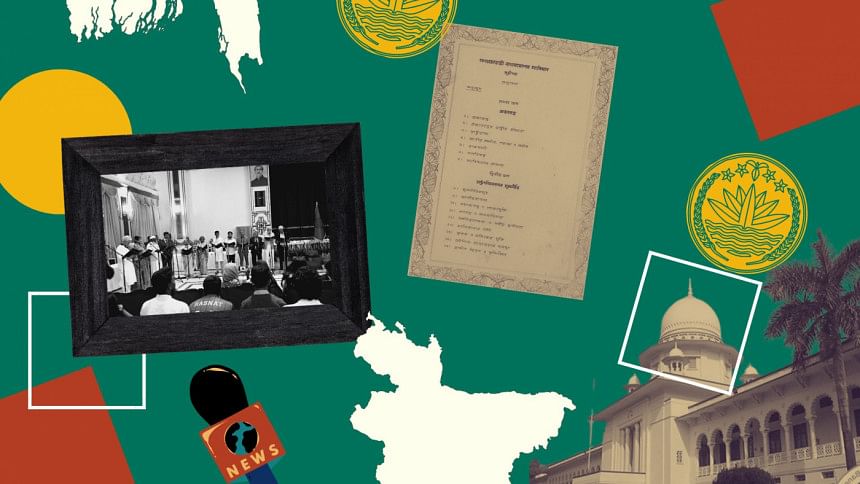
In a speech to diplomats in mid-August, Dr Yunus outlined five strategic arenas for reform: the Election Commission (EC), judiciary, civil administration, security forces, and media. A flood of reform proposals is also emanating from the public, with the invisible gun of censorship being set aside.
In this climate, the Chief Adviser's decision to zero in on five big picture public policy arenas was a salient move. For an unelected government without a constitutional mandate, it is necessary to classify what can feasibly be achieved within a reasonable timeframe and what cannot due to time constraints. Calls for elections are expected to grow louder each month.
Framing governance within the overarching umbrella of the public policymaking cycle should be an underlying aspect of how this government functions. First, agenda setting, where problems or issues are identified. Second, formulation and adoption, which may involve new laws or executive orders, depending on the nature of a particular policy. Third, implementation, implying tangible actions and the allocation of financial resources. Fourth, monitoring and evaluating the efficacy of a policy through impact, process, and cost-benefit analyses to assess success.
Policymaking following a grassroot-led mass uprising organically leads to knee-jerk reactions: quick, impulsive decisions driven by immediate concerns rather than a well-planned long-term roadmap. A balance between caution and ambition is, therefore, required. Attempting to resolve every outstanding issue would be a categorical mistake. The government should focus on the first two stages of the policymaking cycle: identify the most pressing problems and the solutions it wants to pursue, and then initiate the third stage of the cycle. Once these steps are in motion, the government will be better positioned to fulfil its moral duty: the organising of fresh elections.
" layout="left"]Revisiting Yunus's strategic priorities, the principal obstacle across all five focus areas is the pervasive politicisation of public institutions by partisan loyalists. These institutions, intended to operate impartially, have been compromised by political interference of a scope, scale, and magnitude that has set the bureaucracy on an ominous path to failure. The concentration of political and policymaking authority under the prime minister is also a significant problem. Rapidly changing leadership at the top of public institutions will not be enough. What is needed is a culture change within both Bangladesh's private and public sectors, i.e. a behavioural shift in how things are done. Achieving this is far more complex than putting good policies on paper.
The interim government is restricted to selecting individuals from a pool tainted by the previous regime, making institutional reform extremely difficult. However, they can develop what is commonly termed Five to Ten-Year Strategic Plans through negotiations with as many stakeholders as possible, particularly parties who intend to run in the upcoming elections. This would help create a broader, more inclusive base for policy development across the five identified priorities, setting out a measurable vision to which political stakeholders must commit.
Electoral reform should address six areas. First, the independence of the EC must be reinforced as a bulwark against executive influence by enacting legal protections and establishing non-partisan criteria for appointments. This will curb the power of ruling parties and ensure that electoral management remains autonomous. Second, the integrity of the voting process can be secured through training for polling officials, which will help reduce voter fraud, ensure accurate vote counting, and deter any manipulation of election outcomes.
Third, a rigorous and enforceable electoral code of conduct should be developed, with rules for political parties overseen by an independent body to keep political actors in check and discourage unethical practices. Fourth, campaign financing reform is needed, including the introduction of defined regulations, donation caps, and public funding for candidates who adhere to these guidelines, to limit the influence of oligarchs in politics. Fifth, judicial independence must be upheld by establishing election-time tribunals staffed with impartial judges.
Judicial reform should focus on six areas. First, clear criteria for judicial appointments should be established, potentially through an independent commission that evaluates candidates based on merit rather than political connections. Second, checks and balances on the chief justice's authority in forming High Court Division benches should be considered, perhaps through a rotational system overseen by a committee of senior judges. Third, the Ministry of Law, Justice and Parliamentary Affairs, in consultation with the Appellate Division, should develop a Five-Year Action Plan to reduce the judicial backlog in Bangladesh's criminal justice system, focusing on budgetary allocation, streamlined case management, and the adoption of virtual courts.
Fourth, enforcing constitutional seniority rules is required to prevent the ad hoc appointment of less experienced judges to the Appellate Division, ensuring that promotions are based on both experience and performance. Fifth, a judicial framework should be developed to address corruption and bias within the judiciary, including the creation of a judicial oversight body with the authority to investigate and recommend disciplinary actions. Lastly, colonial era laws like Section 54 of the Code of Criminal Procedure should be reassessed, with recommendations for alternative legislative language that respects individual rights and limits the overreach of state power.
Civil administration reforms should tackle five issues. First, a merit-based appointment system, long demanded by Bangladeshis and recently underscored in the anti-discrimination protests, should be implemented to ensure that recruitment and promotions are based on qualifications and skills rather than political affiliations. Second, the issue of in situ promotions should be addressed by restructuring the civil service to balance staffing levels, creating a promotion pathway that rewards performance while preventing an over-concentration in senior roles.
Third, the Table of Organisation and Equipment across ministries should be updated to better align staffing and resources with needs, informed by an audit of current staffing levels. Fourth, an independent commission should lead the overhaul of civil service regulations, incorporating global standards and best practices. Lastly, accountability and performance monitoring mechanisms should be implemented to gauge civil service performance, target inefficiencies, and combat corruption, including performance reviews and a whistleblower protection programme.
Reforming security forces and law enforcement requires a focus on five areas. First, the misuse of law enforcement powers must be curtailed by prohibiting mass detentions, unlawful arrests, remand-based custody, and unauthorised surveillance, with all such actions subject to judicial review. Second, the Cyber Security Act (CSA) and other repressive legislation weaponised by law enforcement agencies should be overhauled to prevent abuse against political dissenters, including specific provisions to end unauthorised phone tapping and social media surveillance.
Third, efforts to combat financial corruption and money laundering within law enforcement should be strengthened by enhancing internal oversight and strengthening specialised financial crime units. Fourth, addressing the issues of extrajudicial killings and enforced disappearances is critical. An independent oversight body empowered to investigate allegations, publicly report findings, and prosecute those responsible are important. Fifth, the establishment of an independent law enforcement reform commission is necessary to review current practices, propose guidelines for lawful detentions, regulate the use of military-grade weapons, and train law enforcement personnel on nonviolent crowd management and human rights protection.
Lastly, reforming the media landscape is fundamental when it comes to democratic consolidation. First, justice must be ensured for journalists killed during student and public movements, with compensation provided to injured media workers and families of the deceased. All closed media outlets should be reopened without delay. Second, media owners and executives who have used their platforms for political purposes must be investigated, and those found responsible should face legal action. Undemocratic practices in media ownership must be stopped, and dividends should be distributed according to Bangladesh's labour laws.
Third, labour rights in the media sector need to be strengthened by establishing a unified wage board and promptly implementing the Ninth Wage Board. Investigations should address any misuse of state benefits claimed under the Eighth Wage Board without proper implementation. Fourth, media workers must be protected from intimidation. Any interference by special agencies in news management, reporting, or the elections of journalistic bodies must be halted.
Finally, an independent commission should be established to address media management and reform. Repressive clauses in laws that restrict press freedom, including specific sections of the CSA, should be revised as per United Nations recommendations. Cases against media personnel under the Information and Communication Technologies Act, Digital Security Act, and cyber security laws must be withdrawn.
The reform proposals reaching the interim government's doorsteps are far from exhaustive. The ideas outlined in this article, for instance, were developed by civil society and presented to the previous government, only to be met with silence. To truly value public input, the interim government should launch a live public consultation platform on the Ministry of Information and Broadcasting's website. This platform would allow citizens to share their ideas, with the ministry ensuring that sector-specific suggestions are directed to the appropriate ministries and advisers.
In his address to the nation on August 25, Dr Yunus elaborated on the aforementioned five key arenas and further discussed reform mechanisms in banking, education, and other sectors. The interim government has begun outlining its strategic vision through this speech but now needs to formalise it in writing. This process requires time and should not be restricted by a fixed timeline. When a foundational roadmap for reforms is firmly in place, the people of Bangladesh will recognise it. Dr Yunus and his administration, through good faith discussions with political actors, civil society, and other stakeholders, should be trusted to determine the right moment for the transition to an elected government.
Mir Aftabuddin Ahmed is a public policy columnist. He can be reached at [email protected]. Views expressed in this article are the author's own and do not reflect those of any organisation, institution, or entity with which he is associated.
Follow The Daily Star Opinion on Facebook for the latest opinions, commentaries and analyses by experts and professionals. To contribute your article or letter to The Daily Star Opinion, see our guidelines for submission.

 For all latest news, follow The Daily Star's Google News channel.
For all latest news, follow The Daily Star's Google News channel. 





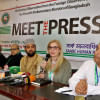
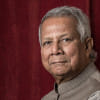
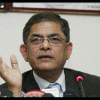

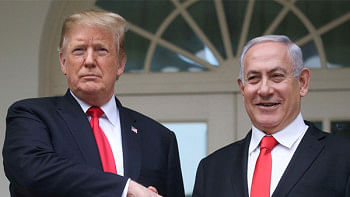
Comments